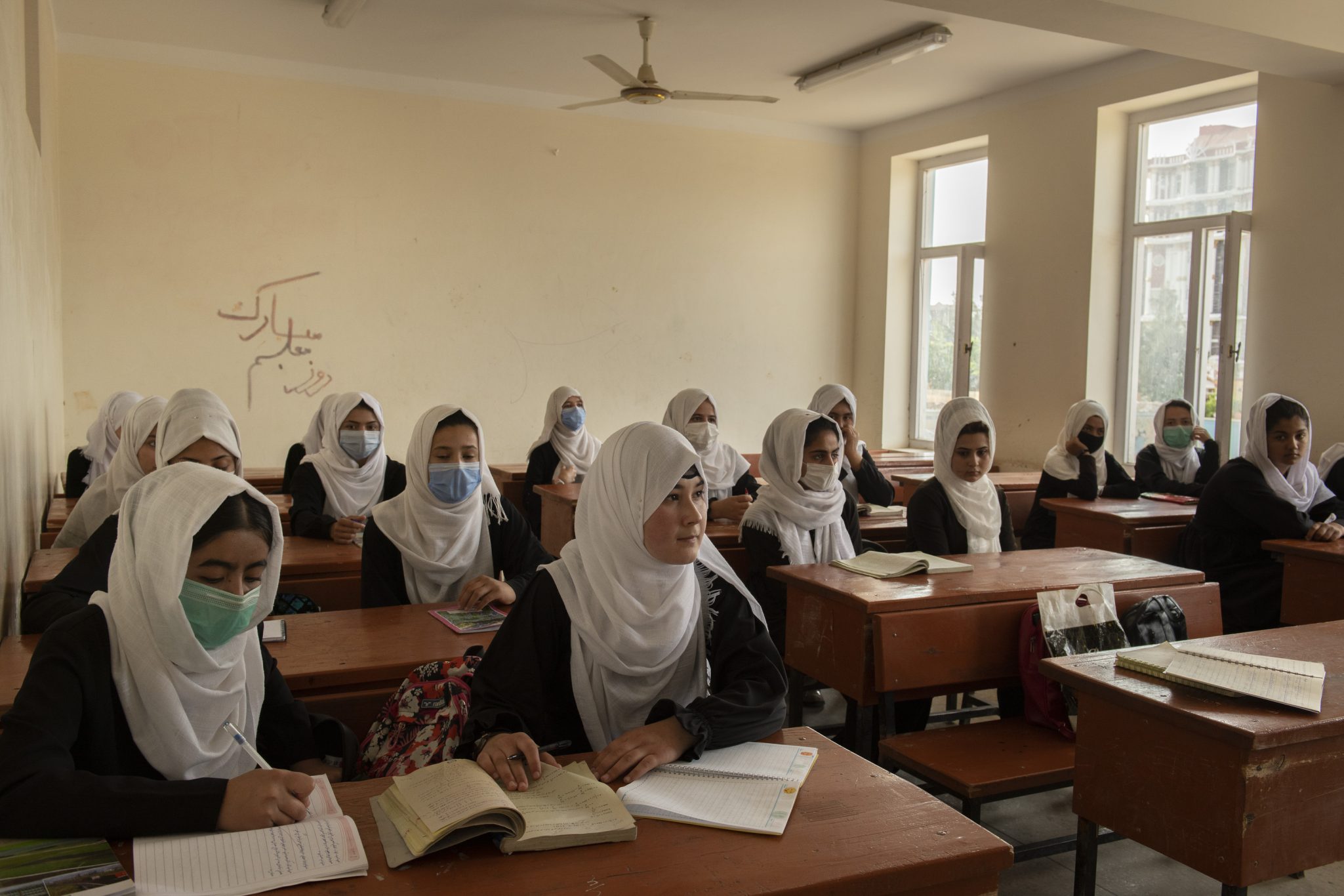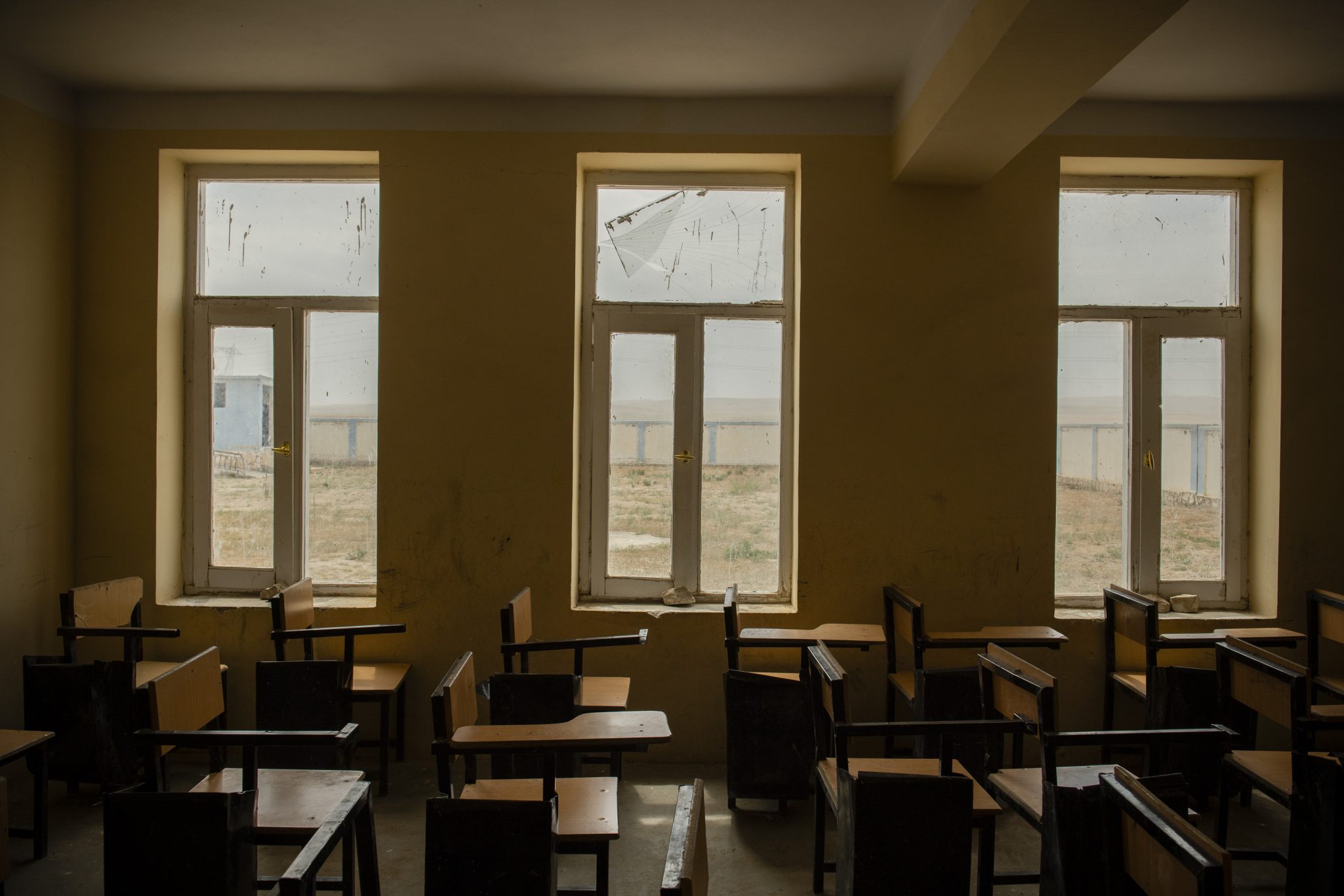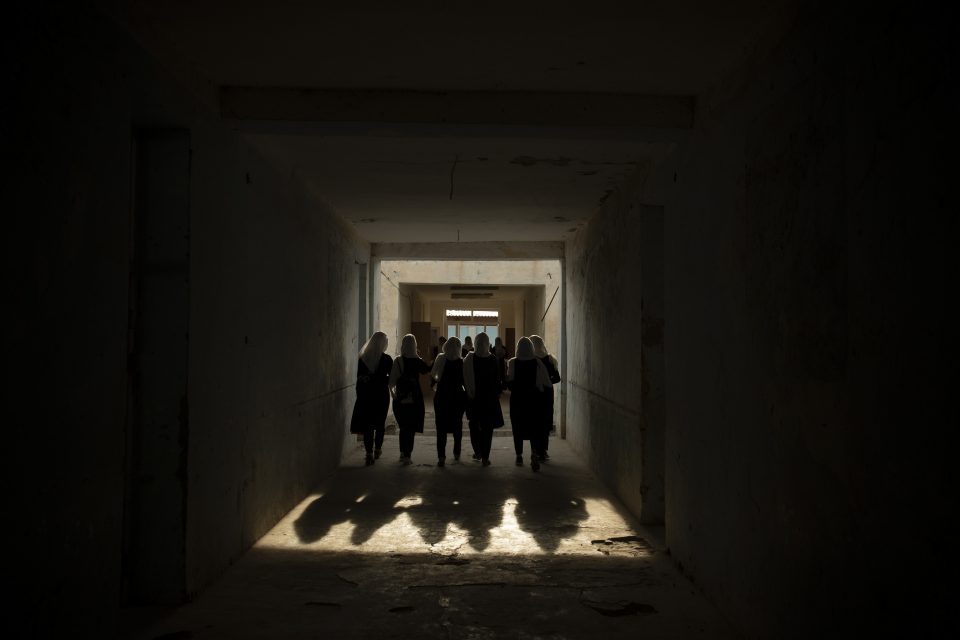By Adam Nossiter
SHEBERGHAN, Afghanistan — The order to shut down the girls’ schools was announced at the mosque, in a meeting with village elders. The news filtered through the teachers, in subdued meetings at students’ homes. Or come in a curt letter to the local schools’ chiefs.
Appeals to the Taliban, arguing and entreaties were useless. So three years ago, girls older than 12 stopped attending classes in the two rural districts just south of Sheberghan, a low-slung provincial capital in Afghanistan’s northwest. Up to 6,000 girls were pushed out of school, overnight. Male teachers were abruptly fired: What they had done, provided an education to girls, was against Islam, the Taliban said.

All over Afghanistan the orders have been similar to those issued just 40 miles south of Jowzjan province’s capital. In districts controlled by the Taliban, no more schooling for all but the youngest girls, with some few exceptions. The Taliban’s message: Teenage girls should be at home helping their mothers.
“For two years, I couldn’t go back to school,” said Farida, now 16, who was kicked out of school in Darzab district at 12, and was a refugee here in the provincial capital by the age of 14. “It was my sister who told me there would be no more school — she is a teacher,” Farida said. “So then I was at home, just helping my mother with the housework.”
The schools in Sheberghan all have their share of female teenage refugees who travel north from Taliban-controlled areas and stay here with relatives.
“I told my family: ‘I really, really want to study,’’’ said Nabila, 16, who came to Sheberghan from Darzab two years ago with her mother. “Maybe they are just afraid of women.”
The grudging acquiescence of local populations offers a window to what life could be like for Afghans everywhere if the current slow-rolling collapse of government military forces continues. Each day brings bad news about the ascendant insurgency: More bases overrun, districts captured, outposts surrendered and government workers and journalists assassinated. Since May 1, when the United States formally began its withdrawal, the Taliban have captured territory in practically every part of the country.
And over the weekend, a triple bombing of a school in Afghanistan’s capital, Kabul, left dozens of schoolgirls dead. While the Taliban denied responsibility, the culprit sent a clear signal: Education for girls will not be tolerated.
But in Jowzjan province’s south, the future has already arrived. The parallel universe that is now the lot of many Afghans is a vivid reality for the province’s education officials and teachers. With grim resignation, they must deal with the fate of neighbors living nearby, yet on the other side of the looking glass.
The Taliban control the districts of Qosh Tepa and Darzab — drought-stricken and impoverished agricultural lands that are home to about 70,000 people — and all 21 of these districts’ schools. They took charge in 2018 after fierce fighting with local Taliban renegades who had proclaimed allegiance to the Islamic State, as well as with government forces.
Taliban control notwithstanding, every month the districts’ teachers trudge to Sheberghan, the provincial capital, to collect their salaries, one of many anomalies in a country that is already under de facto control of two governments. Better to have to pay the teachers than close the schools. The city, dusty but bustling, is still in the hands of the central government, but like other provincial capitals it is an isolated island; the Taliban rule the roads, coming and going.
The provincial government still employs school chiefs for the captured districts. But local education officials must watch, helplessly, as Islamist insurgents front-load a heavy dose of religion into the curriculum, slash history instruction and keep the girls out.
The female teachers have been fired. The Taliban use free government textbooks, but they strictly monitor their use, and make sure the ones devoted to Islamic instruction get a heavy workout. And they punish teachers who do not show up for work, docking their pay. There are no days off. The Taliban have accused teachers in these districts of spying, and of shaving their beards.
“‘If we don’t obey them, we will be punished,’” the education director of Jowzjan, Abdul Rahim Salar, recalled the teachers and principals telling him. “They were worried for their lives.’’
For the girls who escape to Sheberghan to continue their education, there is the sense of a baffling destiny imposed by the Taliban, narrowly avoided. Nilofar Amini, 17, said she missed the school she was barred from three years ago. She had arrived here in the provincial capital only four days before.
“I want to be educated,” Amini said, sitting with relatives in a room at a derelict shopping center.
Her high voice was muffled by the light blue burqa imposed by the Taliban even on teenagers — she wore it out of habit but removed it after the interview. Amini described her life since the schools ban: “I have been sewing, making kilim rugs, handicrafts.”
She added: “The girls there, they stay indoors all day. They can’t even visit relatives.” The Taliban have destroyed the cellphone towers; no chatting on phones.
Amini’s father, Nizamuddin, a farmer, sitting next to her in the shopping center, hinted at the consequences of the Taliban strictures against girls’ education: “I’m illiterate. It’s like I am blind. I have to be led by others. And so that is why I want my daughters to be educated.”
The Taliban’s policy on education for girls can vary, slightly. Local commanders make the decisions, reflecting the decentralization of a movement that scholars like Antonio Giustozzi have described as a “network of networks.” Human Rights Watch noted in a report last year that though the Taliban commanders often permit schooling for girls up to age 12, it is unusual for them to allow it for older girls. Though in some areas, “pressure from communities has persuaded commanders to allow greater access to education for girls,” the report said.
But not many. And not in this part of Afghanistan.
A teacher in the district whose three teenage daughters are now barred from schooling said, “The situation is bad, and I feel badly for them. They don’t have anything to do.” He added that his daughters are just helping their mother with housework.
Encountered at the provincial school headquarters in Sheberghan, where he had gone to collect his salary, the teacher asked that his name not be used out of fear of retribution by the Taliban. He said his daughters keep asking when they can return to school.
“They wouldn’t let us study any longer,” said Fatima Qaisari, 15, at a dusty camp for refugees from neighboring Faryab province. She was 12 when her school was shut down.
Education officials here describe an environment of repression in which residents, parents and teachers have no opportunity to weigh in on the Taliban’s rigid and harsh policies.
“We’ve been in touch with them many times. But there has been no result,” said Abdel Majid, the head of schools in Darzab.

“They tell us, ‘Our government doesn’t want us to teach girls,” he said. “Nobody can disobey them.” The Islamic State faction destroyed some of his schools; others don’t have windows.
c.2021 The New York Times Company


